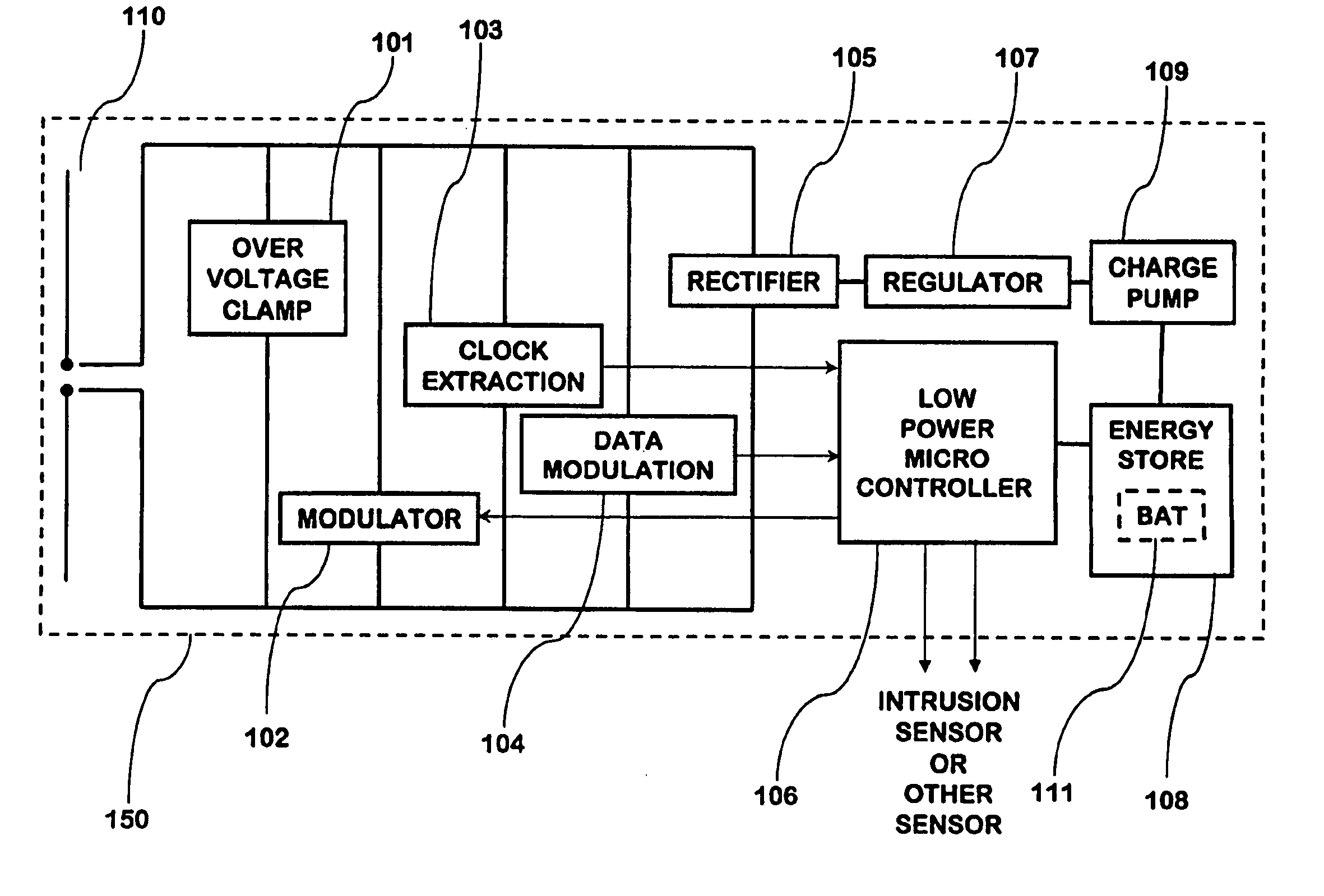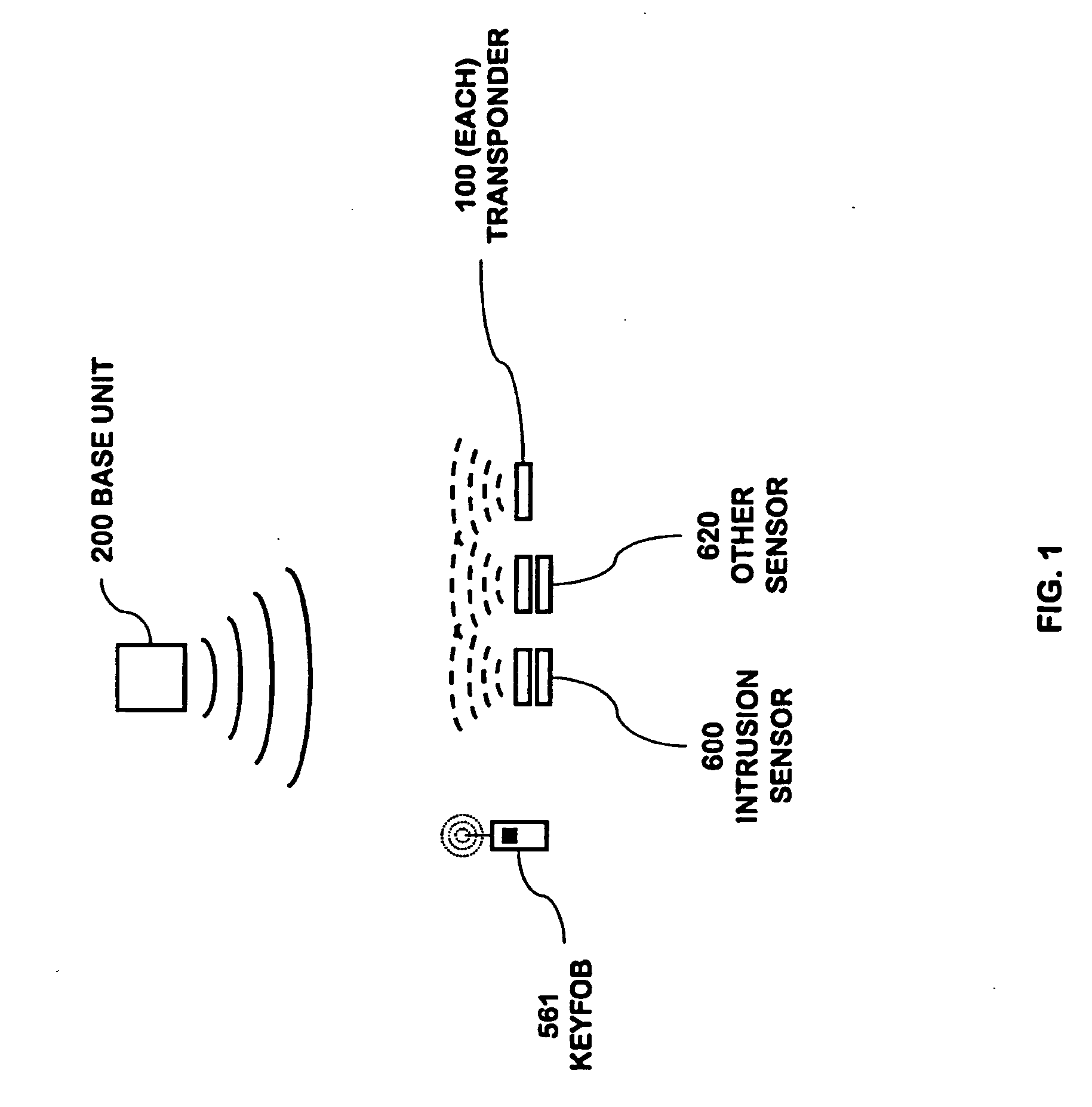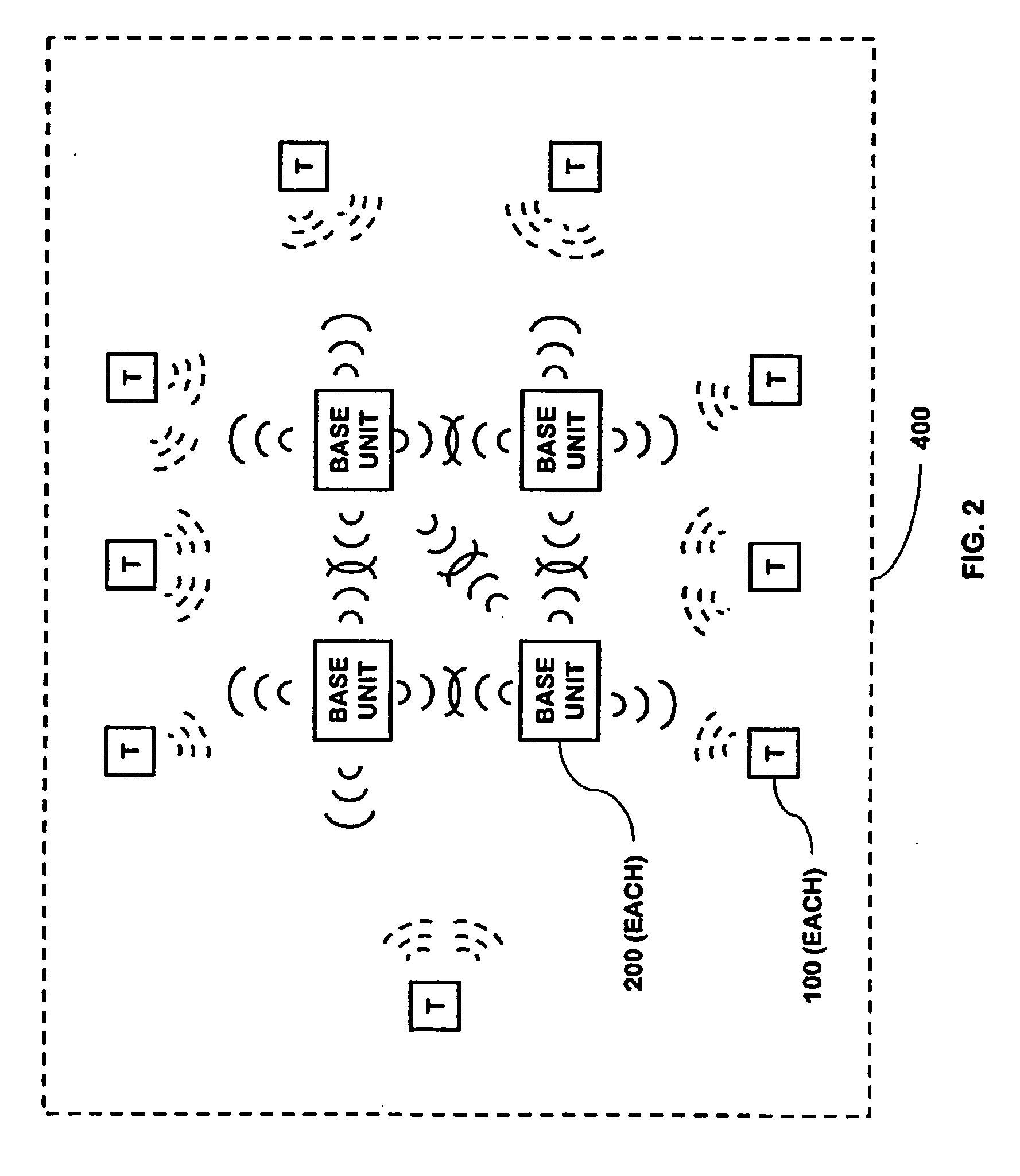Power management of transponders and sensors in an RFID security network
a technology of transponder and sensor, applied in the field of security networks, can solve the problems of inconvenient inability to drill holes for hardwiring, and inability to guarantee the reliability of the installation of security systems, and achieve the effect of high reliability
- Summary
- Abstract
- Description
- Claims
- Application Information
AI Technical Summary
Benefits of technology
Problems solved by technology
Method used
Image
Examples
Embodiment Construction
[0055] The present invention is a highly reliable system and method for constructing a security network 400, or security system, for use in a building, such as a commercial building, single or multifamily residence, or apartment. For consistency with the cross referenced applications, the term security system may be used sometimes, though in the context of this present application, the terms security system and security network 400 shall be considered interchangeable as they apply to the present invention. The security network 400 may also be used for buildings that are smaller structures such as sheds, boathouses, other storage facilities, and the like. Throughout this specification, a residential house will be used as an example when describing aspects of the present invention. However, the present invention is equally applicable to other types of buildings. Some forms of the present invention may also provide cordless telephone functionality and may further be packaged in an embo...
PUM
 Login to View More
Login to View More Abstract
Description
Claims
Application Information
 Login to View More
Login to View More - R&D
- Intellectual Property
- Life Sciences
- Materials
- Tech Scout
- Unparalleled Data Quality
- Higher Quality Content
- 60% Fewer Hallucinations
Browse by: Latest US Patents, China's latest patents, Technical Efficacy Thesaurus, Application Domain, Technology Topic, Popular Technical Reports.
© 2025 PatSnap. All rights reserved.Legal|Privacy policy|Modern Slavery Act Transparency Statement|Sitemap|About US| Contact US: help@patsnap.com



